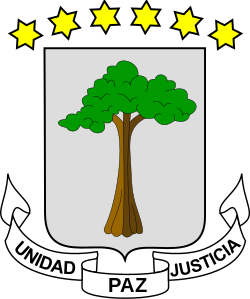 |
|---|
Equatorial Guinea is known for human rights abuses. Under the current government it has "limited ability of citizens to change their government; increased reports of murders of civilians by security forces; government-sanctioned kidnappings; systematic torture of prisoners and detainees by security forces; life threatening conditions in prisons and detention facilities; impunity; arbitrary arrest and detention and incommunicado detention; harassment and deportation of foreign residents with limited due process; judicial corruption and lack of due process; restrictions on the right to privacy; restrictions on freedom of speech and of the press; restrictions on the rights of assembly, association, and movement; government corruption; violence and discrimination against women; suspected trafficking in persons; discrimination against ethnic minorities; and restrictions on labor rights." [1]
Contents
- Political prisoners
- Historical situation
- International treaties
- See also
- Notes
- References
- External links
There were multiple irregularities in the 2009 legislative elections, but they were considered an improvement over the flawed 2002 and 2004 elections. [1] There is a cult of personality in Equatorial Guinea around the leader. In order to improve his and Equatorial Guinea's image, long time autocrat Teodoro Obiang hired Racepoint, a global marketing and public relations firm, for $60,000 a year. [2] Transparency International includes Equatorial Guinea as one of its most 12 corrupt states. [3] [4]
Equatorial Guinea also had the death penalty. In September 2022, this was cancelled by President Teodoro Obiang Nguema Mbasogo and Vice President Teodoro Nguema Obiang Mangue. [5]